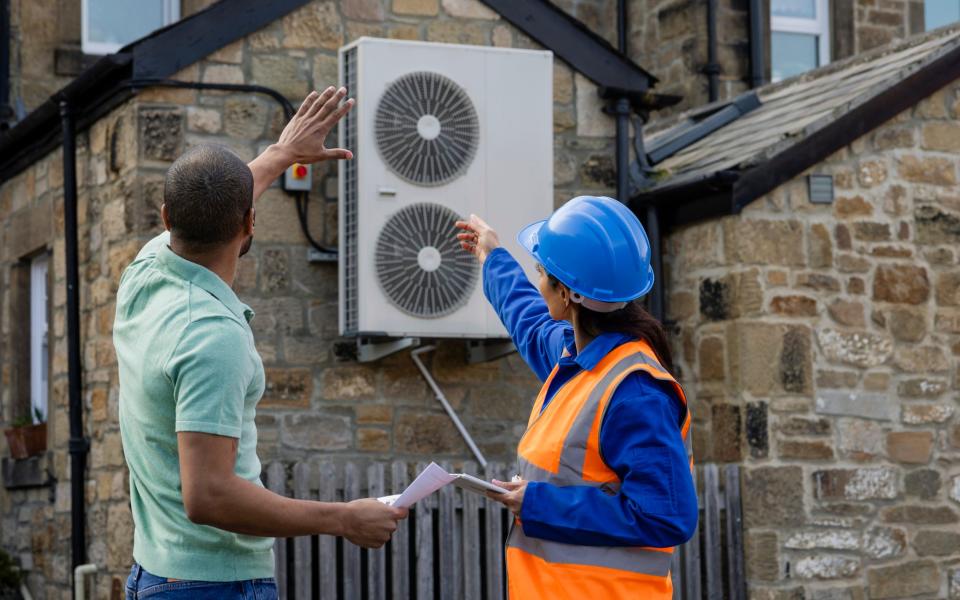Heat pumps ‘too expensive for ordinary families’

Heat pumps are too expensive for ordinary families to install and run, the Energy Secretary Claire Coutinho has been warned by MPs.
The Government must urgently make low-carbon heating systems cheaper if it wants to reach its goal of net zero emissions by 2050, according to a report by the Public Accounts Committee (PAC).
Almost all of the UK’s 28 million households must ditch their gas boilers and decarbonise their heating systems for ministers to achieve their goal of net zero emissions.
Nearly a fifth (18pc) of all UK greenhouse gas emissions come from heating the nation’s homes, the vast bulk of it from burning natural gas.
The Government wants to phase out gas boilers by 2035 and the Department for Energy Security and Net Zero (DESNZ) has a target for Britain to be installing 600,000 heat pumps per year by 2028, up from just 55,000 in 2021.
But high costs for households mean uptake has so far been slow and the Government is not on track to meet this target.
The PAC report said: “The cost of buying and running heat pumps is a substantial barrier to take-up for most households, at a time when incomes are already stretched.”
An average heat pump costs £11,600, four times more than a gas boiler.
The Government aims to reduce heat pump installation costs by 25pc by 2025, but so far they have only fallen by 6pc since 2021.
The PAC report said: “Costs need to come down much quicker.”
Heat pumps are also more expensive to run than traditional boilers because they use electricity, which costs more than gas, the report said.
The costs are so high that government grants are likely only being used by rich people.
The Government has tried to make heat pumps more affordable through the Boiler Upgrade Scheme, offering grants of up to £7,500 to homeowners towards the costs of installing low carbon heating systems.
However, the PAC report said: “We are concerned that most households receiving the Government’s £7,500 Boiler Upgrade Scheme grant might be from more affluent groups, as they are more likely to be able to afford the additional costs and may have installed a heat pump even without the grant.”
Uptake has so far fallen far short of expectations, with £100m in grant money left unspent in the first year of the scheme.
Between May 2022 and December 2023, grants were used for just 18,900 heat pump installations in England and Wales, less than 40pc of the planned 50,000.
Government data shows that applications have since climbed and were up by 93pc year-on-year in April.
But according to the European Heat Pump Association, the UK’s heat pump rollout is the slowest in Europe.
The application process for the grants is also too complex and confusing, the PAC report warned. It called for DESNZ to set up a website that can give households clear information on heat pump installations, such as laying out the importance of installing insulation alongside a heat pump, and how this can affect energy bills.
Heat pumps use electricity to capture heat from either the air, ground or water to provide homes with heating and hot water without using fossil fuels. They are three times more energy efficient than gas boilers, and are powered using the grid, which increasingly sources energy from renewable means.
DESNZ must set out actions to further increase the number of people who are trained to install heat pumps, the PAC report said.
The Government is targeting 12,000 additional installers by 2025, with 7,000 trained so far. But the Heat Pump Association has suggestsd that the UK will need three times as many by 2028 – a total of 33,700 installers – in order to meet DESNZ’s overall installation target.
DESNZ said it was unable to comment in response due to the pre-election period.

 Yahoo Finance
Yahoo Finance 